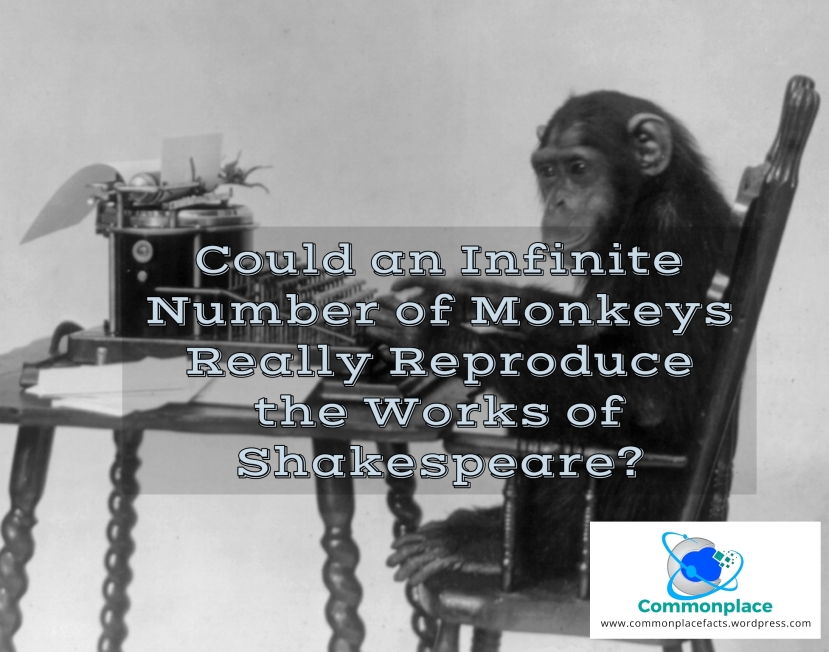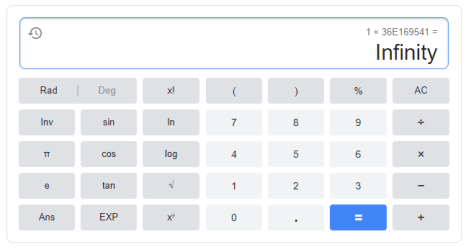
It has been said that if you give enough monkeys enough time to peck away at typewriters, they will eventually, through random chance, reproduce the works of William Shakespeare. That’s an interesting intellectual exercise, but it is even possible to test the notion? Thanks to computers, the Infinite Monkey Theorem has finally been put to the test.
The first reference to what has become known as the Infinite Monkey Theorem appears to have come from French Scientist Émile Borel’s 1913 paper “La mécanique statique et l’irréversibilité.” In it, he posits:
Let us imagine that a million monkeys have been trained to strike at random on the keys of a typewriter and that, under the supervision of illiterate foremen, these typing monkeys work hard ten hours a day with a million typewriters at various types. The illiterate foremen would collect the blackened sheets and link them in volumes. And after a year, these volumes would be found to contain the exact copy of books of all kinds and all languages kept in the richest libraries in the world. Such is the probability that there will occur for a very short instant, in a space of some extent, a notable deviation from what statistical mechanics considers as the most probable phenomenon….
Thomas Henry Huxley (1825–1895), best remembered today as “Darwin’s Bulldog” for his defense of Charles Darwin’s theory of evolution, is frequently credited for taking Borel’s hypothetical and connecting it to the ability of monkeys to produce the complete works of William Shakespeare. In his 1930 monograph The Mysterious Universe, mathematician James Jean referred to the concept, attributing it to someone named “Huxley.” The Million Monkey Theorem has captured the imagination of many ever since.
There have been multiple attempts to test the theorem over the past 90 years. In one case, a 2003 study by the University of Plymouth’s Institute of Digital Arts and Technology (i-DAT) involved putting a computer and keyboard in the Sulawesi crested macaques enclosure at the Paignton Zoo and recording the results.
After one month, the researchers reviewed the results. The macaques, Gum, Heather, Mistletoe, Elmo, Holly, and Rowan, managed to generate a grand total of five pages of absolute gibberish. The computer appeared to primarily motivate the primates to urinate and dedicate upon it until it stopped working. “They pressed a lot of S’s,” said researcher Mike Phillips. “Obviously, English isn’t their first language.” While failing to prove or disprove the Million Monkey Theorem, the project’s director was pleased that the live-streaming of the study “provided very stimulating and fascinating viewing.”
Fortunately, in the world of cyberspace, it is possible to not only create a room of infinite monkeys, but it is also possible to ensure the monkeys do not relieve themselves on the keyboards. One such program actually resulted in a random monkey typing the first 19 letters of The Two Gentlemen of Verona: “VALENTINE. Cease to…” To accomplish this, it took 42,162,500,000 billion billion monkey-years.
In a similar experiment, The Monkey Shakespeare Simulator, after a mere 2,737,850 million billion billion billion monkey-years the virtual monkey produced part of a line from Henry IV: “RUMOUR. Open your ears…”
There was one study that boldly proclaimed a success. In 2011 millions of virtual monkeys on Amazon’s SC2 cloud reportedly produced A Lover’s Complaint and significant portions of other Shakespearean works. Don’t be too quick to call the matter settled, though. The parameters of the experiment required each monkey to generate random sequences of nine letters. Once any of the sequences were determined to be part of Shakespeare’s canon, that monkey’s work was considered to be done. It then required someone to piece together the work of the different monkeys to make it look like the Bard’s writings. Mathematics professor Ian Steward said this was the only practical way to do the experiment since, “to type up the complete works in the correct order without mistakes would take much longer than the age of the universe.”
Mathematicians have calculated the odds of producing Hamlet by randomly pecking away at a keyboard. To make things easier, formatting and capitalization were disregarded. Additionally, they limited the keyboard to having only the 36 characters that actually appear in the play. Hamlet has 169,541 characters, and within the scope of the stated parameters, the researchers were looking for a character-to-character match. When given the task to 100 cyber-monkeys, the odds of the monkeys simply typing the word “Hamlet” worked out to be 1 in 21,767,823. The chances of them coming up with the entire play are 1 in 36 169541. If you ask Google Calculator how much that is, you get:

You can try a version of this experiment yourself, using the Infinite Monkey Simulator. At this site, you can type any combination of characters and have the computer calculate the theoretical probability and the experimental probability of random characters forming that combination. Using this tool, the computer says that the theoretical probability of 11 sequential characters spelling out the word Commonplace is 1 in 3,670,344,486,987,776.
It seems pretty conclusive that monkeys strike out as great authors. Fortunately, at least one monkey was quite successful as an artist. Perhaps art is a better field for primates who want to express their creative sides.
Read more fun facts about numbers.
Read more fun facts about computers.
Categories: Animals, Literature, Mathematics, Numbers

interesting; one more fun fact dispelled!
LikeLiked by 1 person
Amusing.
I’ve nominated you for the Mystery Blogger Award:
https://jmshistorycorner.wordpress.com/2020/03/20/mystery-blogger-award-3/
LikeLike